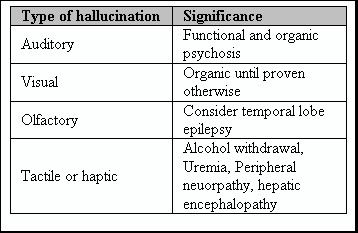HALLUCINATION
Hallucinations are sensory experiences that occur without any external stimuli. These experiences can affect any of the five senses—sight, hearing, taste, smell, and touch—and they are perceived as real by the person experiencing them, even though they do not actually exist. Hallucinations can be a symptom of various medical, neurological, and mental health conditions. Here are some types of hallucinations:HALLUCINATION
Auditory Hallucinations:
- Auditory hallucinations involve hearing sounds, voices, or noises that are not present in the external environment.
- People experiencing auditory hallucinations might hear voices conversing, criticizing, or giving commands.
Visual Hallucinations:
- Visual hallucinations involve seeing objects, people, or scenes that are not actually there.
- These hallucinations can range from simple shapes or colors to complex scenes and beings.
Gustatory Hallucinations:
- Gustatory hallucinations involve perceiving taste sensations that are not present. For example, someone might taste something bitter or sweet without any actual taste stimuli.
Olfactory Hallucinations:
- Olfactory hallucinations involve smelling odors or scents that are not present in the environment.
- These hallucinations can range from pleasant aromas to unpleasant or disturbing smells.
Tactile Hallucinations:
- Tactile hallucinations involve feeling sensations on the skin, such as tingling, crawling, or being touched, even when there is no physical contact.
Hallucinations can occur as a result of various conditions, including:
- Psychotic Disorders: Conditions like schizophrenia and schizoaffective disorder can lead to auditory and sometimes other types of hallucinations.
- Substance Use: Hallucinogenic substances like LSD, mushrooms, and certain drugs can induce hallucinations.
- Neurological Conditions: Certain neurological disorders like epilepsy, brain tumors, and dementia can cause hallucinations.
- Mood Disorders: In some cases of severe depression or bipolar disorder, individuals may experience hallucinations.
- Sleep Deprivation: Prolonged sleep deprivation can lead to sensory distortions, including hallucinations.
- Medical Conditions: High fever, delirium, and other medical conditions can also cause hallucinations.
It's important to note that while hallucinations can be a symptom of mental health or medical conditions, they are not necessarily indicative of a specific disorder on their own. If you or someone you know is experiencing hallucinations, it's crucial to seek medical or mental health evaluation to determine the underlying cause and appropriate treatment.

.jpg)

.jpg)
Comments
Post a Comment